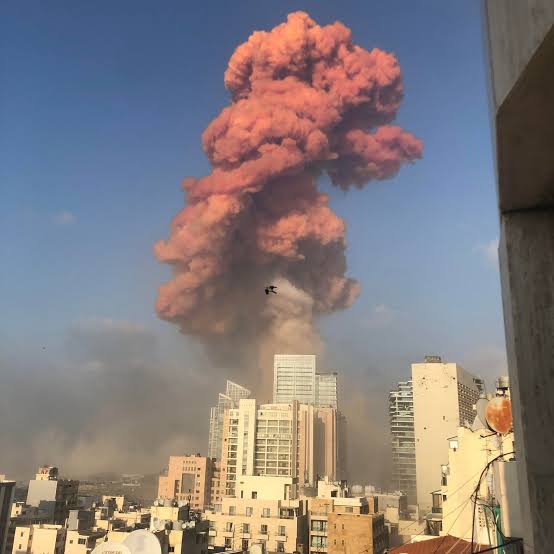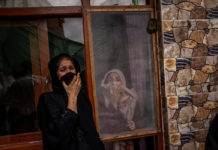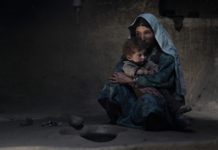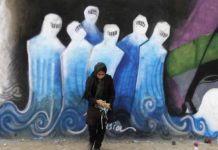A bomb blast near the Lebanese capital, Beirut, has killed at least 78 people and injured more than 4,000, officials say.
The bomb struck shortly after 6 pm local time at a warehouse in the Beirut port area, shaking the city. Its magnitude was so strong that its effects were felt 240 km away in the eastern Mediterranean country of Cyprus, where people considered it an earthquake.
Prior to the blast, a fire was seen at the affected area in the port, after which a large explosion took place and orange clouds covered the crash site. The blast caused extensive damage to the port and its environs, as well as business and residential buildings and vehicles.
President Michel Aoun has declared three days of mourning since Wednesday. A meeting of Lebanon’s federal cabinet has also been convened on Wednesday, and the president has called for a two-week state of emergency.
The blast appeared to have taken place in a warehouse of ammonium nitrate, but has not been officially confirmed. The Lebanese president has said the ammonium nitrate had been in an unsafe warehouse for six years.
Lebanese Prime Minister Hassan Diab has said it is unacceptable that the warehouse contained 2,750 tons of ammonium nitrate. “I will not sit in peace until I find out who is responsible for this incident so that he can be held accountable and severely punished,” he wrote in a message on his Twitter account.
The Lebanese president added that his government was releasing 100 billion lira, equivalent to 65 million dollars, to deal with emergencies. Rescue operations are still under way in the affected area, and rescue workers say the death toll is expected to rise.
“We are seeing a huge catastrophe,” said George Qaitani, head of the Lebanese Red Cross. There are wounded and dead everywhere. Authorities say an investigation has been launched into the incident to determine the cause of the blast.
The blast comes at a time when the country is in deep crisis. The economic situation in the country is very bad and at the same time there is an outbreak of coronavirus. There is also a state of political tension in the country as the verdict in the assassination of former Prime Minister Rafiq Hariri, who was assassinated in 2005, is due on Friday.
The international community has expressed concern and regret over the bombing in Lebanon. The Lebanese government and people have expressed their condolences to the international community for the loss of life and property.
Officials from Britain, the United States, Germany, Israel and Iran have also offered help in their message. The German embassy confirmed on Twitter that its staff had been injured in the incident, while UN peacekeepers were also injured.
The ammonium nitrate that apparently caused the explosion was reportedly seized from a ship in 2013 and stored in a warehouse. Ammonium nitrate is used for many purposes but is mostly used in fertilizers in agriculture. However, it is also used as a flammable material.
When it is brought close to fire, it explodes and releases toxic gases, including nitrogen oxides and ammonia. Because it catches fire, strict rules and regulations are in place to keep it safe. It is also important to make sure that there is no risk of fire where it is kept safe and that there are no pipes, no exit routes where it can be stored.
Lebanon is currently experiencing political tensions. There are huge public demonstrations against the government. People are protesting against the government’s decision to deal with the current economic crisis. This is the worst economic crisis in Lebanon since the 1975-1990 civil war.
At the same time, the government is dealing with ongoing tensions with Israel on the border. Israel said in a statement last week that it had thwarted an attempt by Hezbollah to infiltrate the Israeli border from Lebanon.








